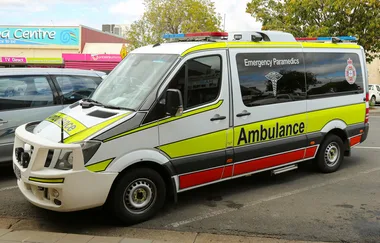- When Mel Hartman,35, was getting ready for a date she suffered a cardiac arrest
- Waking in hospital she was missing 10 years of memories
- She even forgot she had kids
Here Mel tells story her story in her own words.
‘Good to see you!’ I said, opening the door to an old friend.
It was August 2021 and, aged 31, I was just getting ready for a first date when my mate unexpectedly called around, so I put on the kettle to make him a cuppa.
Suddenly everything went black…
The next thing I knew, my children, Mason, then seven, and Ayla, four, were sitting on my left side.
To my right were a huge pair of gates beside a beautiful creek. ‘You can go to the left or right,’ said a voice.
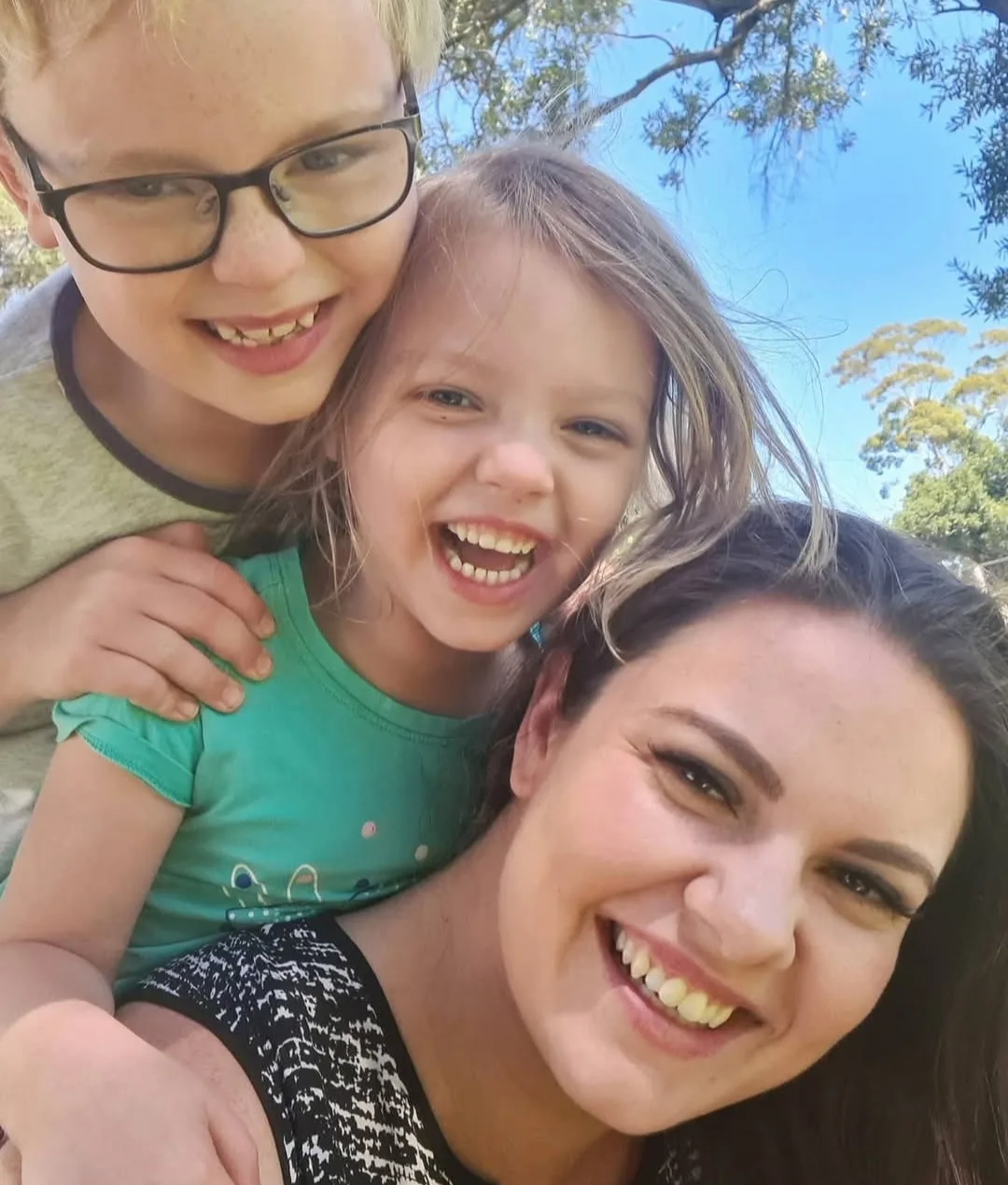
Is this heaven? I wondered.
I longed to step through the gates, but I couldn’t leave my kids, so I turned to them instead. Then I saw a bright white light.
When I came to, the face of my dad Charlie, then 54, swam into view.
‘Thank God you’re awake,’ he said tearfully.
Looking around, I realised I was in a hospital. Tubes snaked into my arms and nose, and I felt disoriented.
‘Was I in a car accident?’ I tried to ask, but all that came out was gibberish.
‘You’re in ICU at Flinders Hospital,’ a nurse said.
‘You had a cardiac arrest and have been in a coma for seven days.’

I was stunned. Apparently, after greeting my friend, I’d had a coughing fit, ran into my bedroom and collapsed.
Dad said my friend had found me unresponsive, not breathing, and with no pulse. Acting quickly, he started CPR and kept it up until paramedics arrived 20 minutes later.
They shocked me seven times before my heart started again. ‘You were clinically dead for 23 minutes,’ Dad told me.
Rushed to hospital, I was placed on life support. The lack of oxygen had caused a hypoxic brain injury, which can lead to mental or physical impairments.
A scan couldn’t reveal the extent of the damage, but showed something unrelated to my collapse – a brain tumour.
More tests found a second tumour, but luckily they both looked benign.
Dad and my mum, Leisa, then 53, were told to prepare for the worst.
Mum explained that my ex-husband Adrian was looking after the children.
‘What children?’ I asked, perplexed.
Somehow I remembered that Adrian and I were no longer together, but in my mind, I wasn’t a mum.
‘What children?’ I asked perplexed.
As doctors thought I wouldn’t make it, Adrian gently told the kids what had happened to me and brought them in.
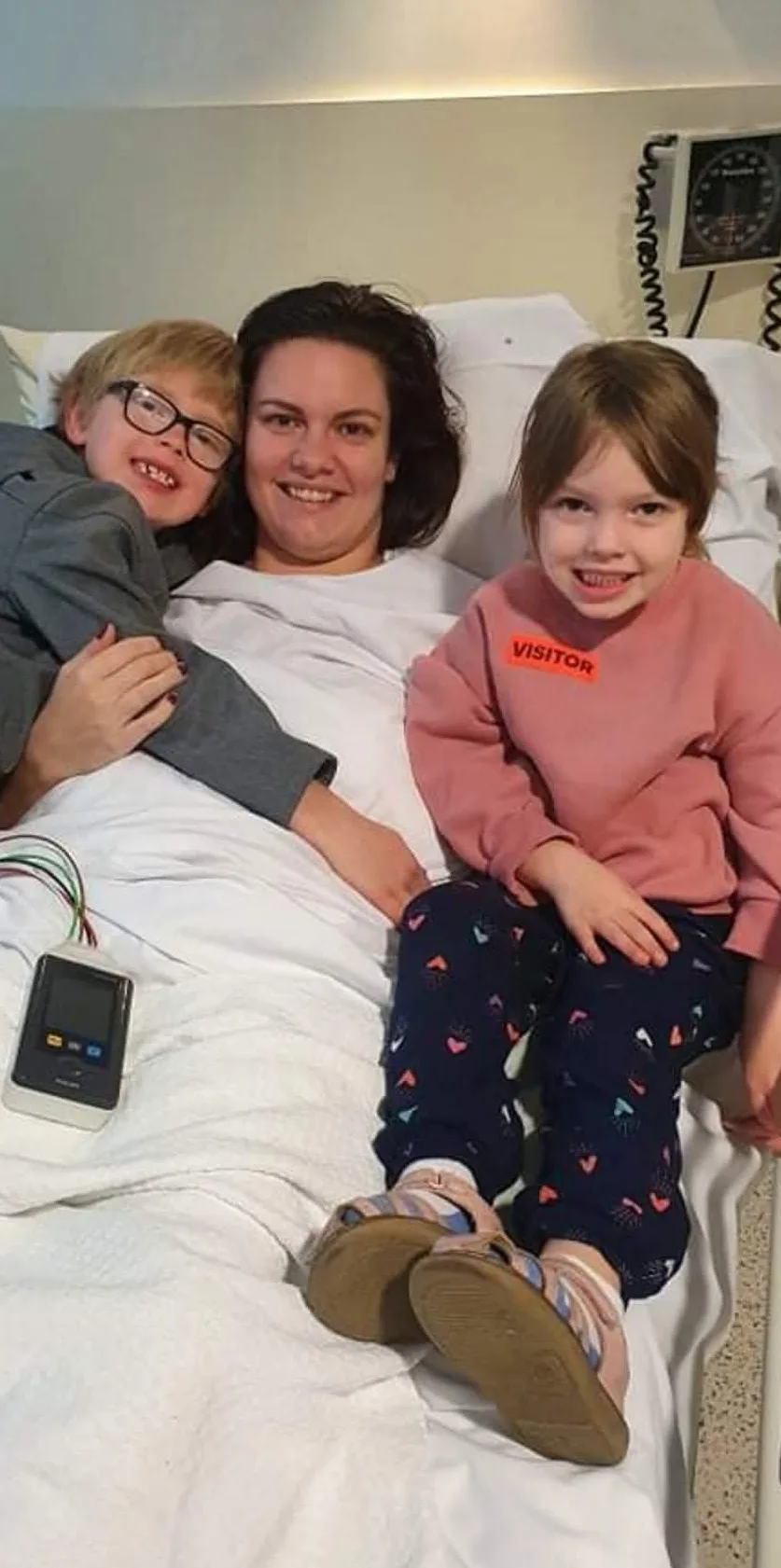
They look cute, I thought, not believing these children were mine.
They wanted to hug me, but couldn’t because I was covered in tubes.
A week after I regained consciousness, I underwent surgery to have a pacemaker and defibrillator implanted in my chest, in case I went into cardiac arrest again.
Then I started rehab to relearn how to walk, talk and eat. Slowly, memories from the past 10 years came back.
Music helped a lot. The therapist played nursery rhymes I’d sing to the children as babies, which helped me remember they were mine.
A cardiac arrest is when the heart stops suddenly, cutting off oxygen to the brain and other organs.
What is cardiac arrest?
Almost 80 per cent of out-of-hospital cardiac arrests happen at home.
It’s important to act quickly if you see someone having a cardiac arrest, as only around 10 per cent of people survive.
But immediate CPR and the use of a defibrillator can greatly increase survival rates.
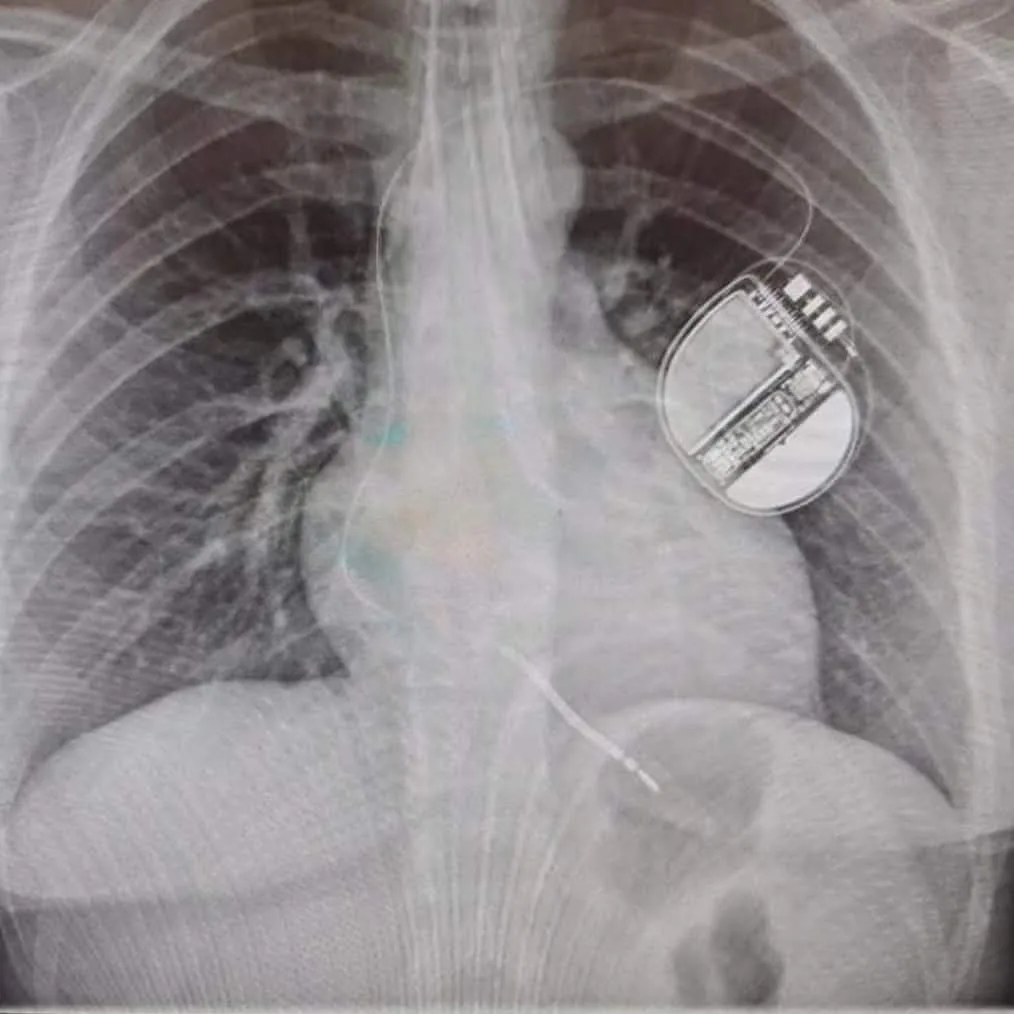
Doctors said it would take two years for me to recover, but I pushed myself and was discharged after six weeks, continuing rehab at home.
It was so wonderful to be back with my kids.
Brain Injury SA enrolled me in a mentor program to speak to others with brain injuries, so I knew I wasn’t alone. In turn I’d supported them by speaking at their conventions.
More than three years on, I’m improving but not as mentally sharp or as physically quick as I was.
My two brain tumours aren’t cancerous, so doctors have decided to leave them alone. But I have regular scans to keep track of them.
I’m sharing my story to highlight the importance of CPR. If my friend hadn’t known what to do, I wouldn’t be here today.
I’m so grateful he didn’t give up on me.
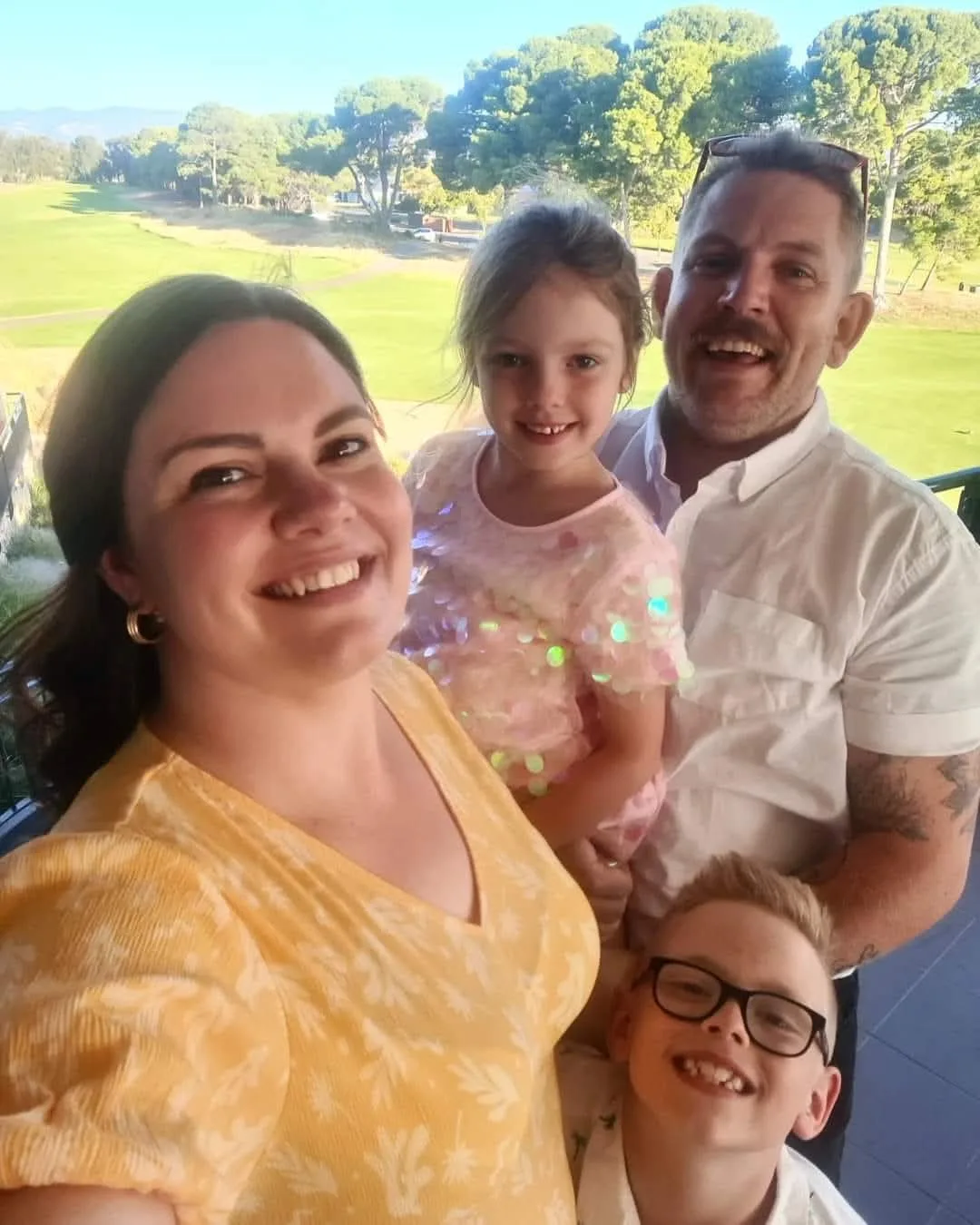
As for that date I missed? The guy didn’t believe I’d stood him up because I had ‘dropped dead’, but life has a funny way of working out.
Cardiac arrests often occur with no warning. Typically someone in cardiac arrest may:
Signs of cardiac arrest
- collapse and fall to the ground
- lose consciousness and become non-responsive
- not be breathing normally or at all
– it may sound like they are choking, gasping or gurgling.
If this occurs, call 000 (AU) or 111 (NZ) immediately.
Three months after leaving hospital, I met a wonderful man named Blake, who works as a CPR teacher and assessor.
He adores the kids, now 11 and eight, and I know I’m in good hands if it ever happens again!
Support Brain Injury SA, at braininjurysa.org.au

